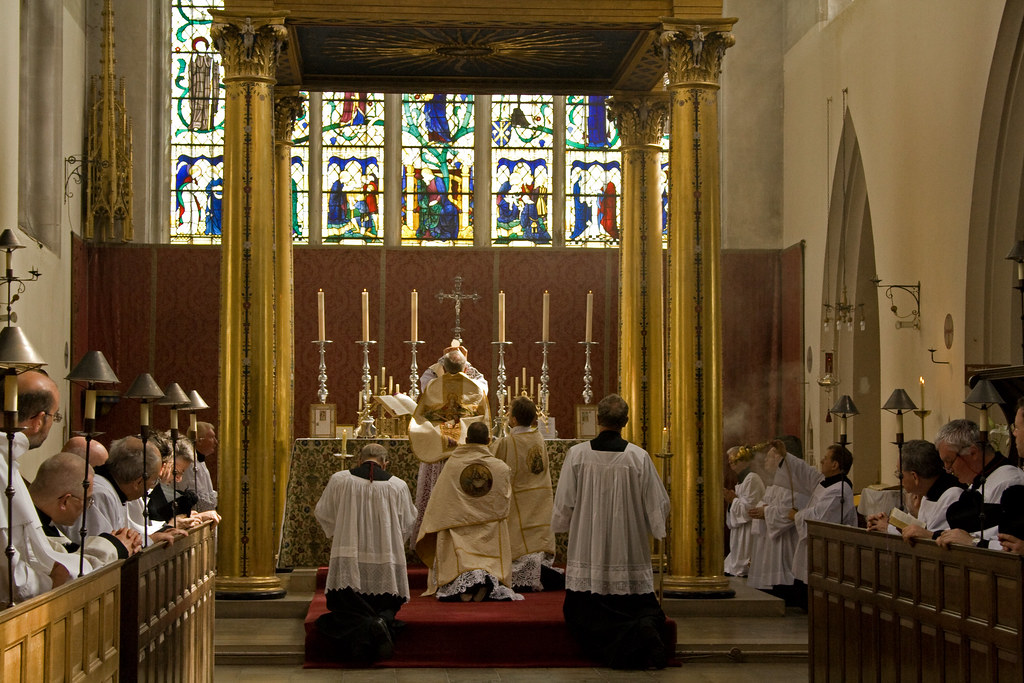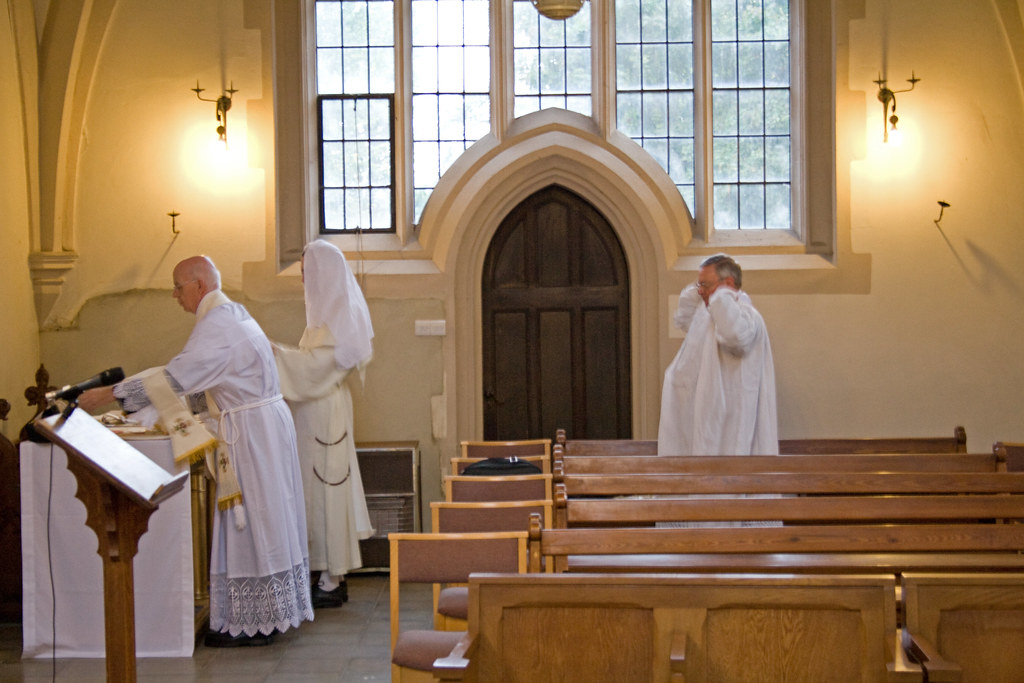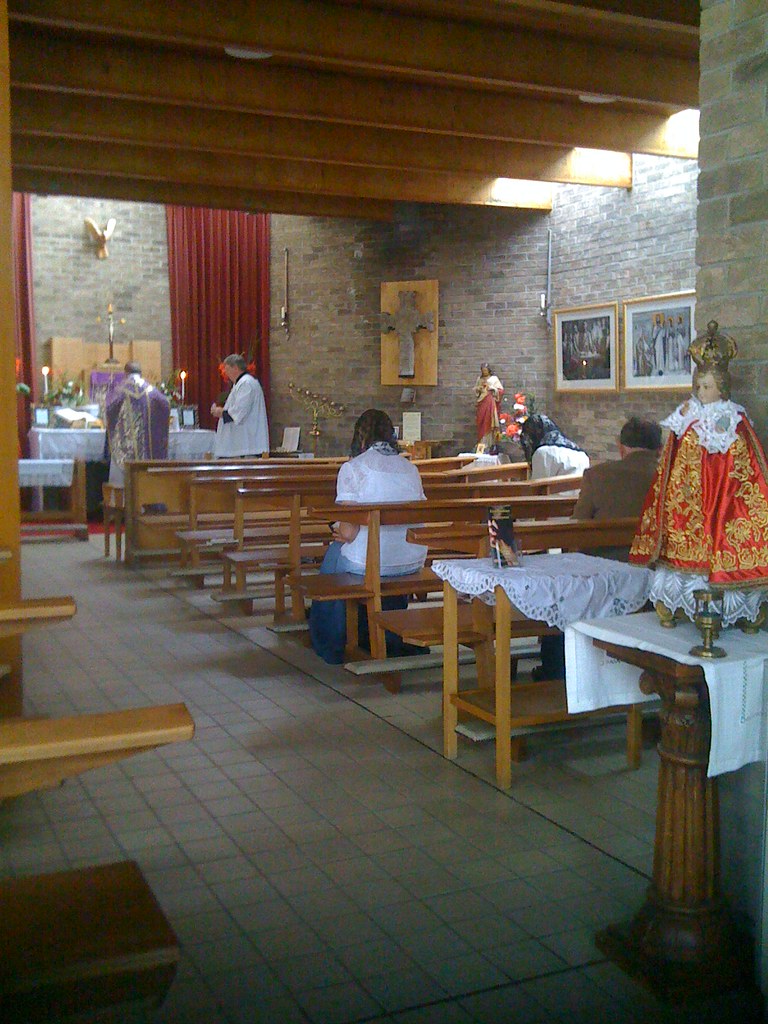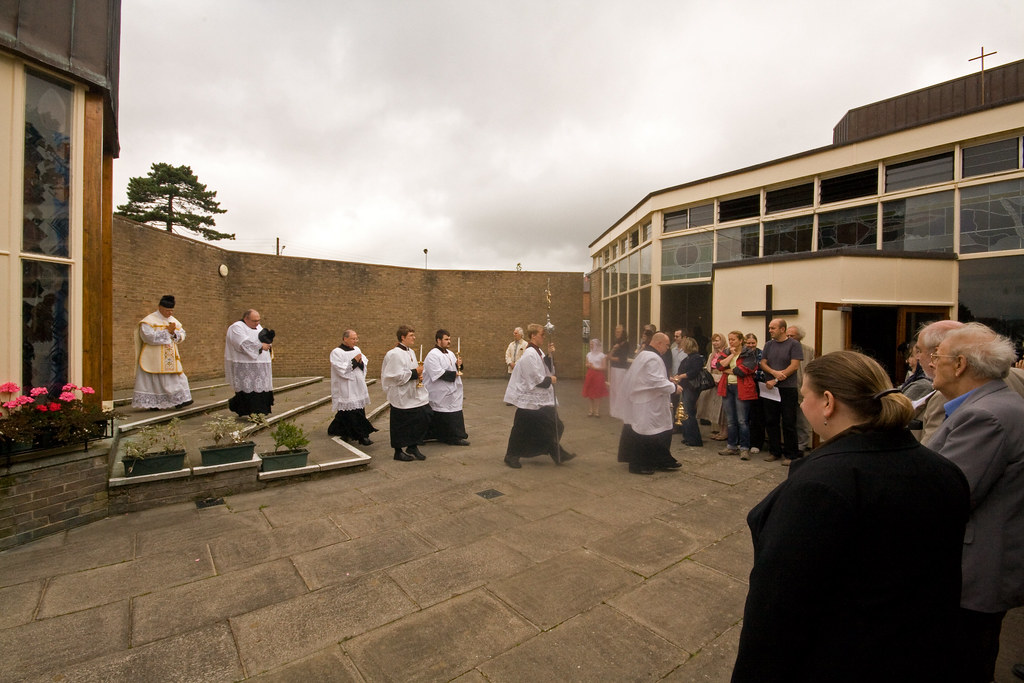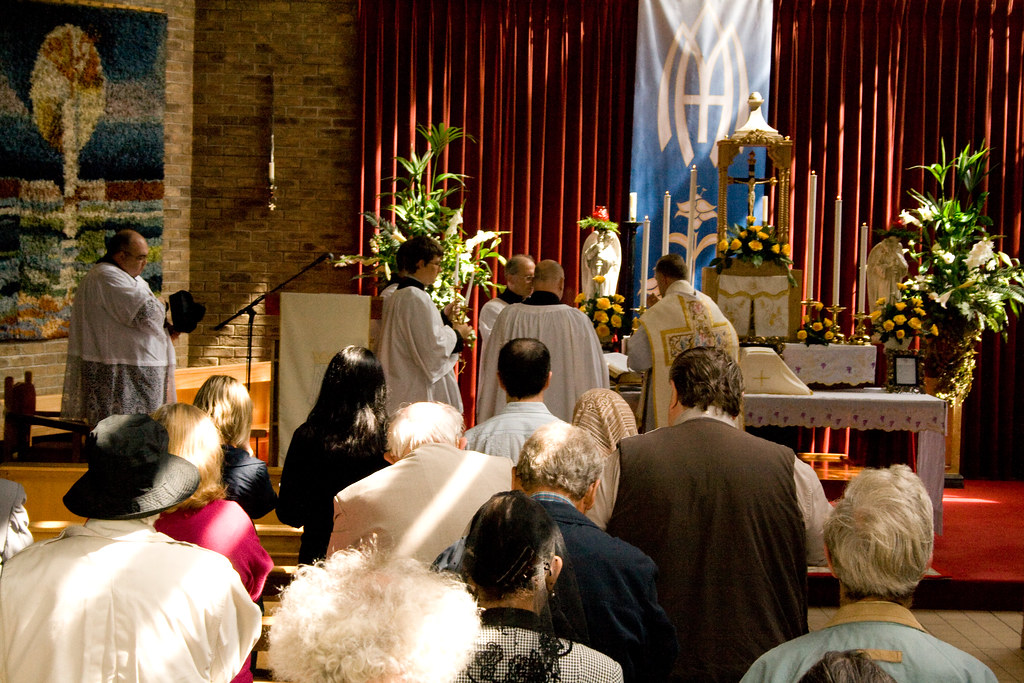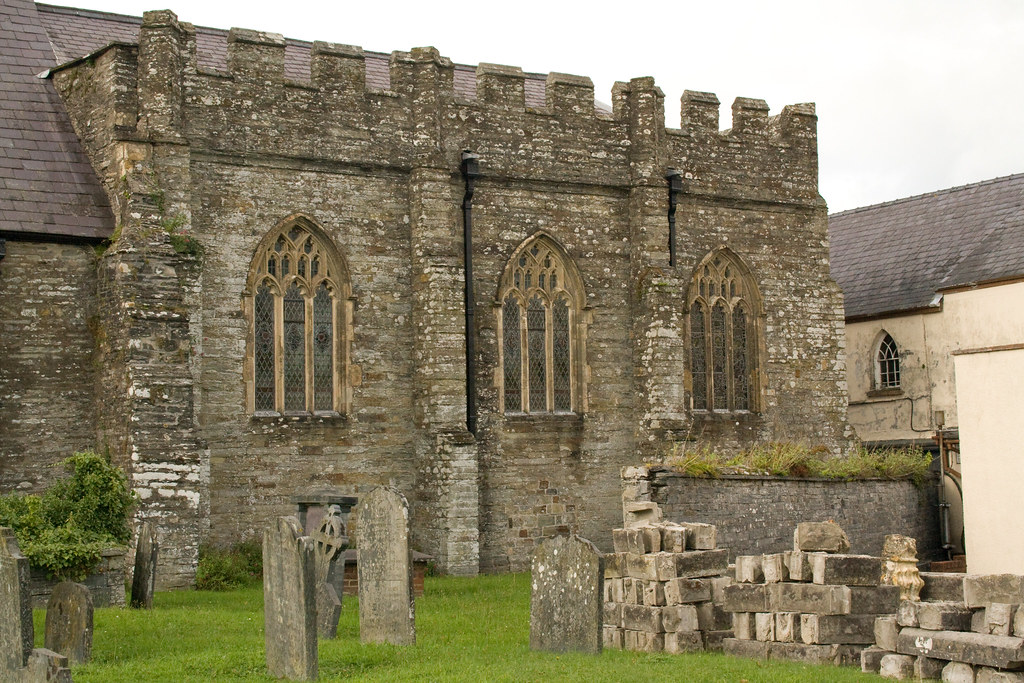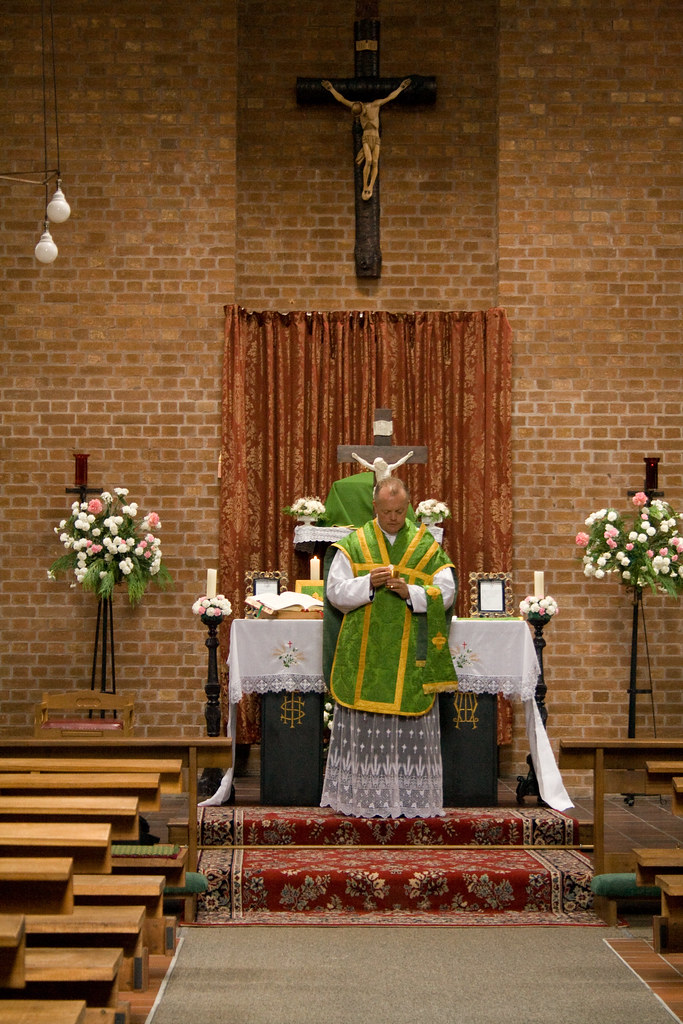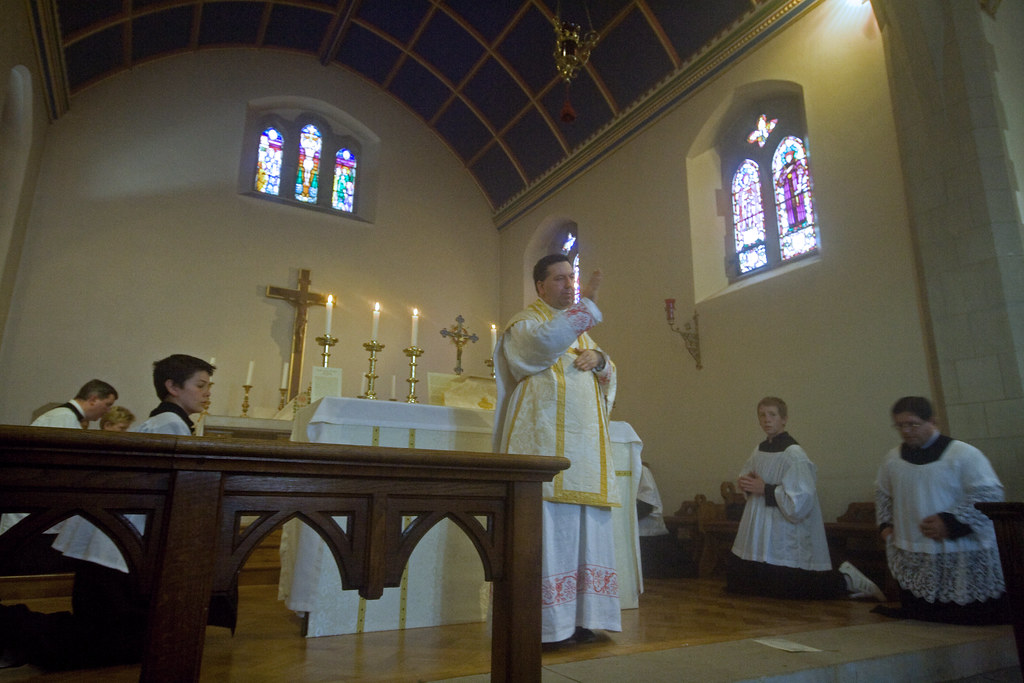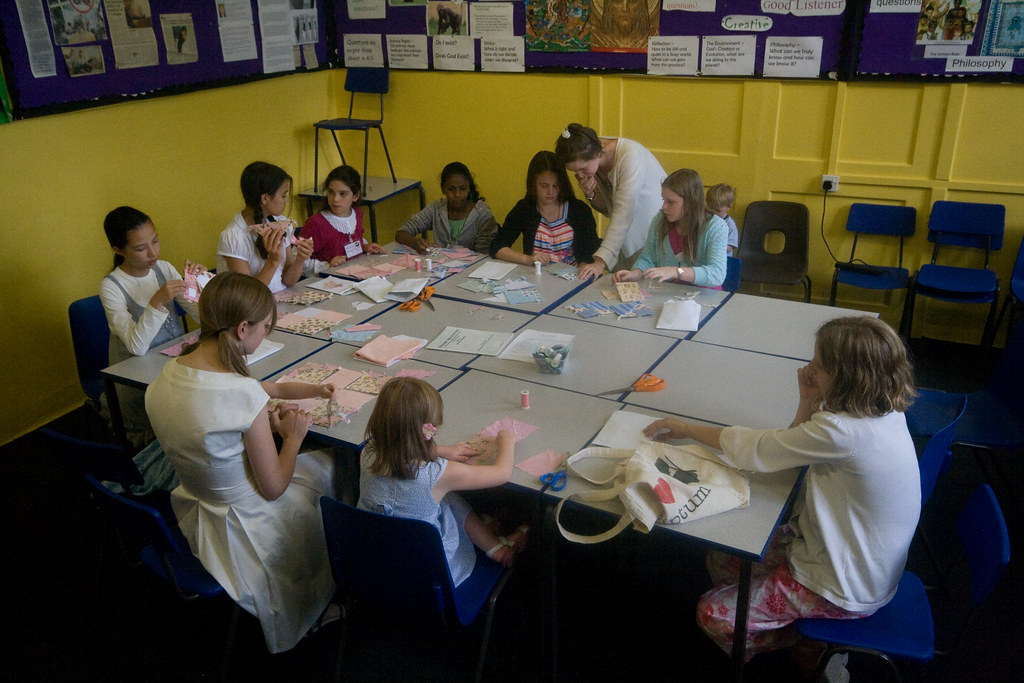
Clergy and servers after the final Solemn Mass of the conference.
The London Colney conference is the fourth residential Priest Training course the LMS has organised, in three years. The support of this course by the Archdiocese of Westminster led to some pretty dubious coverage from The Tablet, which earned a rebuke in the following issue from Bishop Alan Hopes, an auxiliary of the Archdiocese who coordinates matters with the LMS. In a nutshell The Tablet interpreted Archbishop Nichols' endorsement of the conference as a way of bringing a group of dangerous lunatics under some kind of control, in order to stop them initiating a 'culture war' within the Church. Bishop Hopes pointed out rather percipiently that their uncharitable remarks were themselves an example of the waging of a 'culture war'. It is highly unusual for bishops to respond to The Tablet's barbs, and Bishop Hopes' letter is very significant.
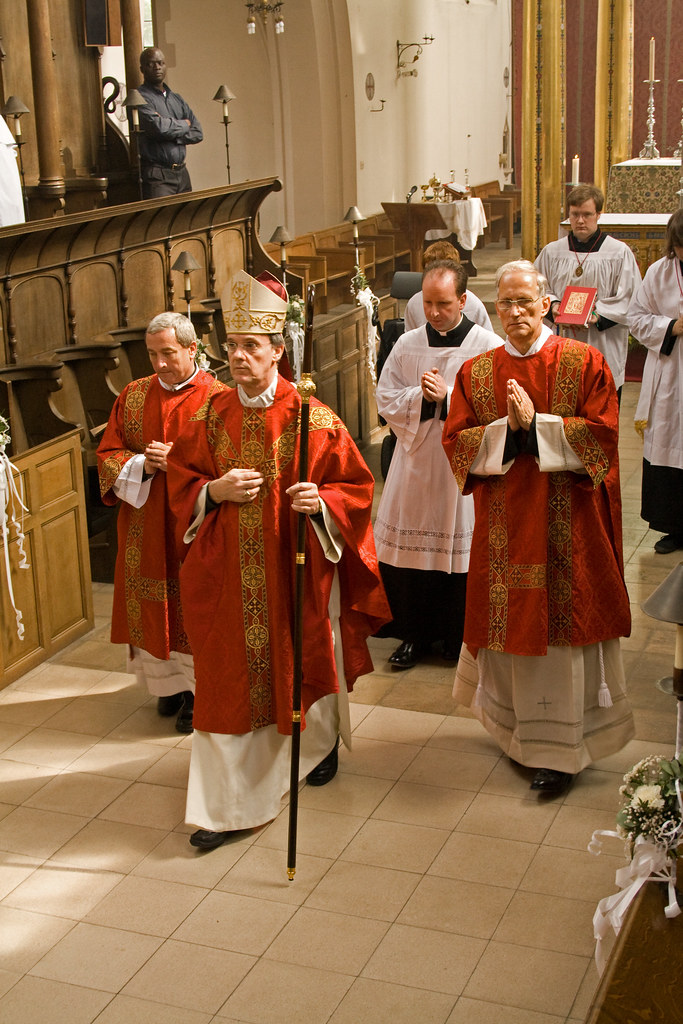
Bishop John Arnold processing out of the chapel after celebrating Mass
Regular readers of The Tablet are all too familiar with this war, which involves attacks on the Holy Father and any Cardinal, Bishop, priest or lay group or individual who does not toe their line on how the Church should jettison all her teachings, liturgical practices, and discipline, in order to join the latest fad. There is a wide legitimate debate in the Church about how best to proceed in preaching the full and authentic gospel in the uniquely difficult times we live in. It is important for all sides to respect the sincerity and hard work of those taking a different approach to their own in this debate, even when it is a radically different approach. The Tablet is not part of this debate, however: it attacks all sides of it.

Fr Aidan Nichols OP (with the LMS Chairman!)
Their attempt to drive a wedge between the Holy Father and the Archbishop of Westminster he so recently appointed, with a number of other recent outrages such as the call for American bishops to ignore the fate of the unborn when considering the 'common good' (common to whom, we might ask?), has led to calls for the editor and sub-editor to resign. What will happen to The Tablet I do not know. Life is too short to bear grudges, however, and we were happy to welcome a Tablet journalist, Christopher Lamb, to the conference dinner on Thursday.

Fr Michael Cullinan after giving his lecture at the conference.
The endorsement of the conference by the Archdiocese was real enough, whatever The Tablet might say. Bishop Arnold celebrated Mass (OF) on the Monday the conference started, with his own team of servers and deacons. Among others we had lectures from Colin Mawby, a former Director of Music in Westminster Cathedral, Fr Aidan Nichols OP (who called for the Sarum Use to be used in Westminster Cathedral to enlarge the liturgical pluralism of the Latin Church), and Fr Michale Cullinan, a well-known Westminster priest and academic, who recounted his own long-term attachment to the Traditional Mass and discussed the 'hermeneutic of continuity' applied to the older and newer usages of the Roman Rite. Bishop Hopes, on behalf of the Archdiocese, took a particular interest in the planning of these lectures.

Fr Pendergraft of the Fraternity of St Peter giving a talk on the 1962 calendar and lectionary.
The atmosphere at the conference was extremely positive. There was a degree of euphoria at the first priest training conference in 2007, which took place soon after the Motu Proprio was published. The mood has settled down to a serious enthusiasm for the traditions of the Church and a strong sense of common purpose and mutual support among the priests. Several of them remarked that the conference had dispelled their fears about the kind of people they might find there. Pastor Iuventus, the pseudonymous contributor to The Catholic Herald who was a conference participant, puts it this way in the current edition:
I knew from its rather prejudiced leading article what The Tablet expected it to be like. I had some anxieties of my own, but now that the Holy Father has de-politicised the extraordinary form of the Roman Rite, I decided it was time to learn to celebrate it properly and so I have come on the course. I am very pleased I did.
 Colin Mawby, left, at the organ, and Charles Finch who directed his choir, the Cantores Missae, for the conference Masses.
Colin Mawby, left, at the organ, and Charles Finch who directed his choir, the Cantores Missae, for the conference Masses.I think it is a tribute to the wisdom of Pope Benedict that this course on the extraordinary form is filled with ordinary priests - I mean priests who clearly have not come here because they are desperate to ally themselves to some faction, but who are working in perfectly average parishes the length and breadth of the country and who find themselves drawn to the reverence of the older form in order to nourish their priestly lives and thereby to foster the devotion of some of their congregations. It is not full of priests plotting to undo the Second Vatican Council, discussing the length of maniple fringes or the claimants to the Bourbon throne, just run-of-the-mill priests who feel that celebrating the extraordinary form once in a while could help them in their particular quest to be good, devout priests, or who are learning it in response to the pastoral needs of their congregations. For these reasons alone, there is nothing marginal or marginalising about the conference.

Monsignor Gordon Read talking to conference participants at a drinks reception.



